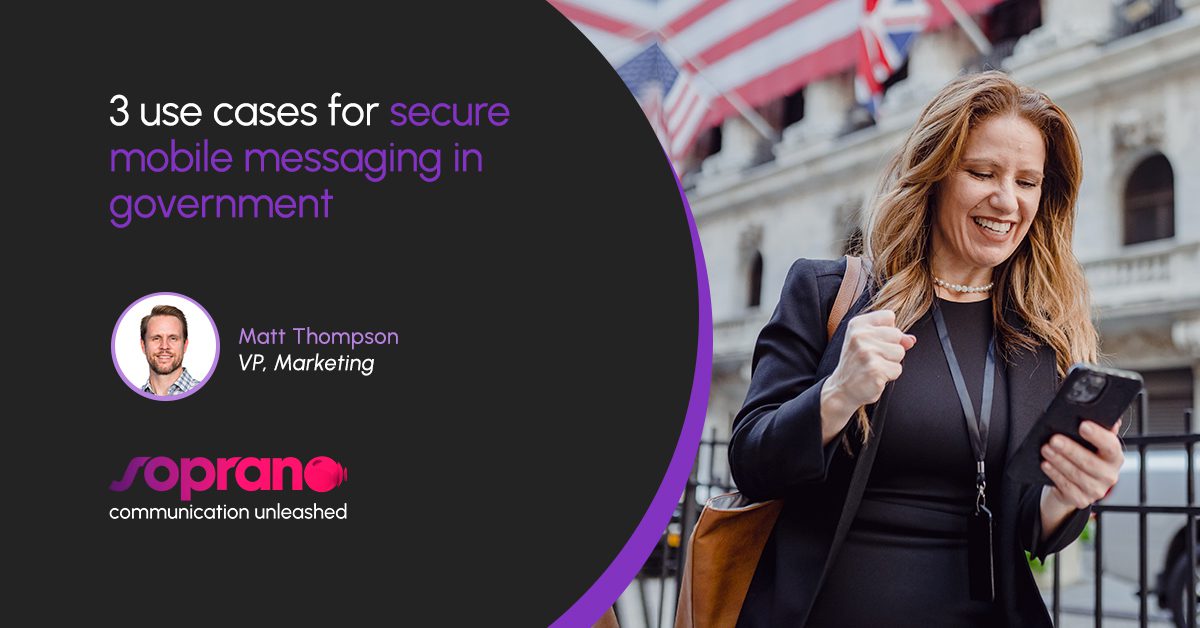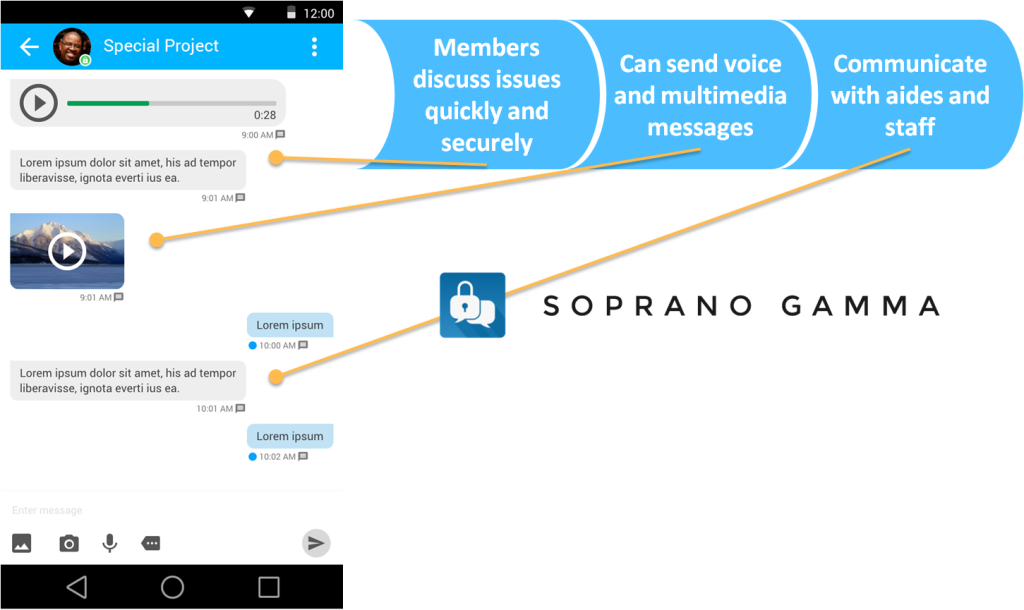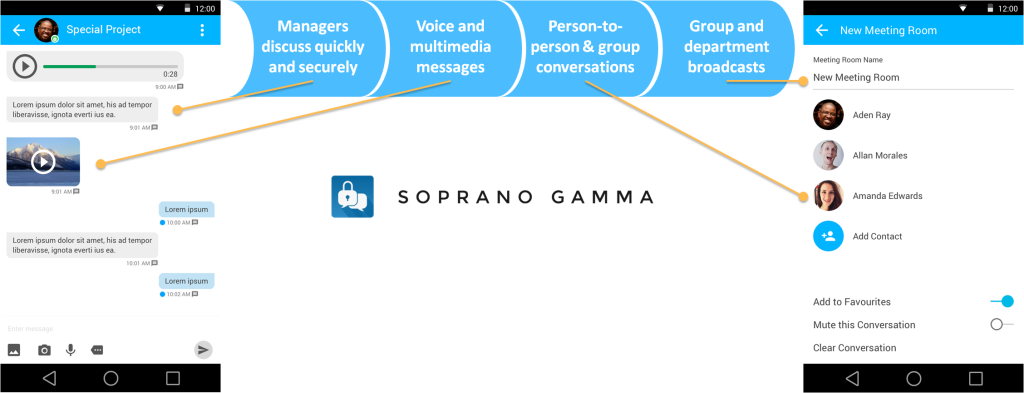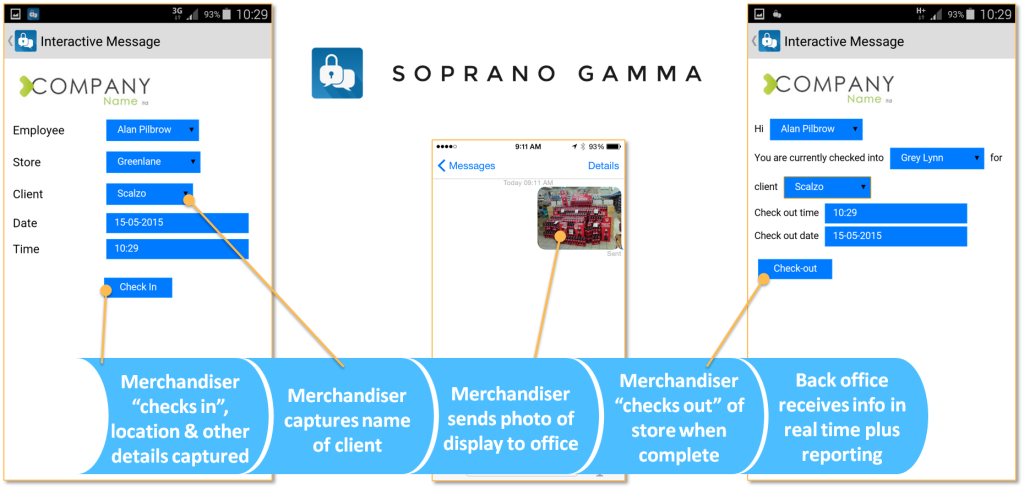
Here are three ways government departments and councils around the world are taking advantage of secure mobile messaging along with bring-your-own-device (BYOD) policies to communicate more quickly and privately, send internal announcements, and allow contractors to work more efficiently.
1. Legislator communications
One of our government clients is a state legislature in a large country. The legislature is bicameral (it contains two branches).
Previously, all members of the legislature had used a paging system to communicate. The system required members to carry both phones and pagers — increasing the risk of losing one or both devices — and lacked two-way communications, so the senders of messages couldn’t receive replies.
In addition, the paging system required funding for both the paging service and a tech support helpdesk.
Soprano helped the legislature replace the dated paging system with an encrypted person-to-person mobile messaging app. Members can now communicate securely at any time of day and add as many other members and aides to the conversation as desired.
This cutting-edge system protects the Speaker’s status in the House and improves his ability to do the job knowledgeably and quickly.
Better yet, we relieved the legislature of the need to upgrade and maintain a messaging service through the organisation’s information and communications technology support.
2. Department internal communications
Unlike the previous government organisation, which had usage needs limited to members and their aides, this government department is quite large. Part of one country’s national government, the department is responsible for regulating and advancing certain industries within its sphere of influence.
Prior to speaking with us, the department had used the usual suspects to communicate: email, phone calls, and voicemail.
But it was increasingly clear to department leadership that managers and senior executives weren’t on the same page. Emails, phone calls, and voicemail were slow, inefficient, and could easily be missed, causing frustration and miscommunication. Managers also had no way to coordinate in an emergency.
We updated their communications system to include mobile messaging. Now, department managers and executive managers have access to secure, instant mobile internal communications right on the phones they carry with them. Managers can coordinate quickly in an emergency and can instantly exchange voice, text, and multimedia messages while out of the office, traveling, or in the field.
The department plans to roll out the mobile messaging app to their employees next, to aid in both person-to-person coordination and in sending official announcements.
3. Government logistics automation
A customer of ours who’s a contractor for a local government facilitates over 6,000 parking meters, consisting of “smart” (connected) and traditional (unconnected) meters that are integrated with local councils for billing.
Previously, for “smart” meters, consumers had the option to send a text message to an SMS shortcode to fund parking meters and receive an SMS confirmation.
The company had 30+ technicians responding to meter issues in multiple cities on a very tight turnaround. Consumers and technicians would call directly into the company’s support center, and support calls were logged through a call center management software web portal with relevant info and issues flagged in a database.
The company then texted technicians with the machine number and street address, but the SMS messages to technicians were often delayed, not received, or not viewed or acted on in time. When the machines remained down for longer than necessary, it created a revenue loss for the councils — both in terms of direct revenue loss and loss from parking tickets.
With our help, the company began using secure mobile workflow messaging forms with Soprano GAMMA to automatically broadcast jobs to available technicians who were in the right geographical area. These technicians now use GAMMA workflow messages to respond and “claim” the job, notify the company they’ve arrived on site and work has begun, and send job closeout notifications, increasing the company’s efficiency and ensuring parking meters have less downtime.
Find out more about how to communicate more quickly and privately with secure mobile messaging and Soprano GAMMA.



